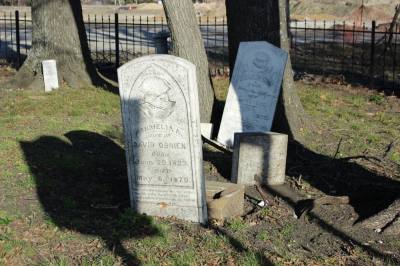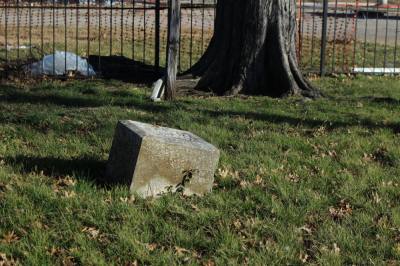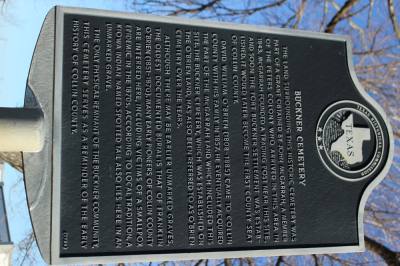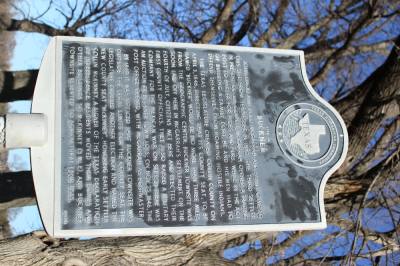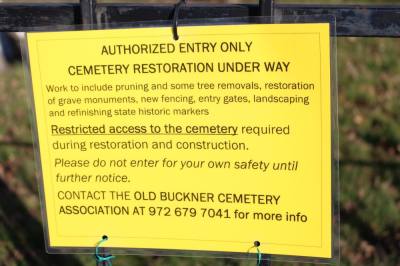The details
Buckner Cemetery, located on the north side of US 380 and west of Hardin Boulevard, was founded in the 1840s and is just under half an acre in size, Fountoulakis said. The cemetery is the last remaining physical evidence of Buckner, the settlement that served as Collin County’s first county seat in 1846, according to a historical marker at the cemetery.
The county seat was relocated to McKinney in 1848 due to state regulations regarding how far the county seat could be from the geographic center of the county. The townsite was later absorbed into McKinney, Fountoulakis said.
The cemetery has about 10 marked graves inside a fenced area but has seen wear over time due to a lack of maintenance and vandalism, she said. Fountoulakis said the cemetery association was established just over a year ago to work toward restoring and preserving the site.
Looking ahead
Restoration work on the site is will begin in February and is expected to be completed by the end of the year, Fountoulakis said.
Upgrades planned for the site include a new metal fence with stone accents, a double entrance gate with new signage, additional lighting and landscaping. The existing historical markers for the Buckner settlement and Buckner Cemetery will be restored and mounted on stone pillars at the entrance, Fountoulakis said, along with a Historic Texas Cemetery Medallion.
“It's going to be gorgeous and new, but it's going to reflect its historic nature as well,” Fountoulakis said of the project. “[The improvements are] going to be very respectful of its history. “
Texas Cemetery Restoration is expected to do the restoration work, including cleaning and repairing grave markers and monument stones, she said.
Diving deeper
The restoration project is being completed as part of the second phase of development of the Plaza at Fort Buckner retail center, according to developer Eric Seitz of The Seitz Group.
The project, funded by the Seitz Group, will total $156,000, he said.
“We worked together on the plans for this because it's just a wonderful opportunity for this site to finally get restored,” Fountoulakis said of the collaboration with the developer.
Quote of note
“We just want to reassure people that this is going to be done right and they're not losing anything historic,” Fountoulakis said. “We're going to gain better access in a better setting for this historic site, which it deserves.”





